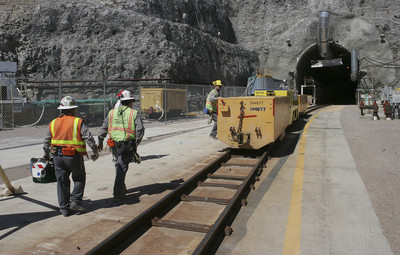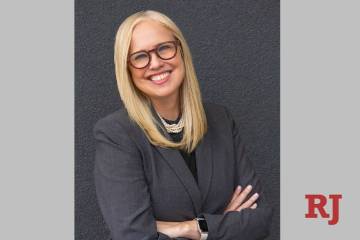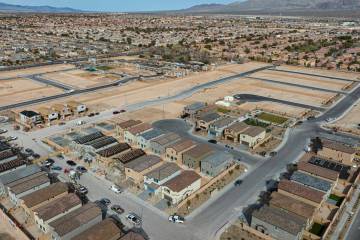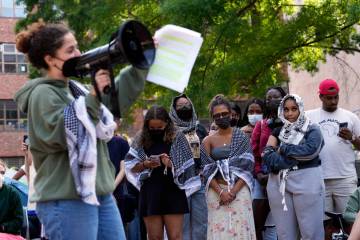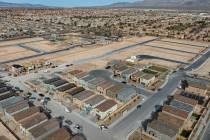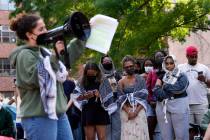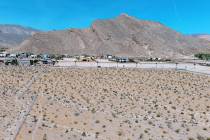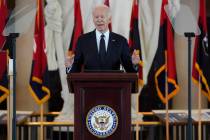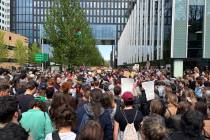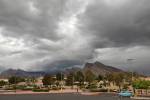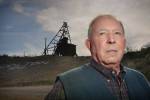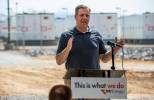Waste site critics see opening
WASHINGTON -- It probably won't happen overnight, but opponents of the Yucca Mountain repository express confidence that President-elect Barack Obama will make good on a campaign promise to steer nuclear waste away from Nevada.
What is unclear is how that might happen, or when. And before it does, proponents are expected to make an appeal to keep the project alive.
Among Nevada elected leaders who oppose nuclear waste storage in the state, Rep. Shelley Berkley, for one, said she can be patient.
"After having spent 10 years fighting Yucca, I can wait three or four more months in order to get this right to make sure this issue gets done," Berkley said.
Obama's victory on Tuesday elected a president who took a position against the storage of highly radioactive nuclear waste at the Yucca site, 100 miles northwest of Las Vegas.
All of the Democrats who ran for president opposed Yucca Mountain in a campaign in which Nevada was a key early caucus state, where Senate Majority Leader Harry Reid has staked a career on opposing the nuclear waste site.
"After spending billions of dollars on the Yucca Mountain Project, there are still significant questions about whether nuclear waste can be safely stored there," Obama wrote in a May 2007 letter to the Review-Journal.
"I believe a better short-term solution is to store nuclear waste on-site at the reactors where it is produced, or at a designated facility in the state where it is produced, until we find a safe, long-term disposal solution that is based on sound science.
"In the meantime, I believe all spending on Yucca Mountain should be redirected to other uses, such as improving the safety and security of spent fuel at plant sites around the country and exploring other long-term disposal options," he wrote.
Obama repeated that point elsewhere, including in an Oct. 30, 2007, letter to Reid and Sen. Barbara Boxer, D-Calif., that has been parsed by people looking for clues as to how he might address the issue as president.
"In short, the selection of Yucca Mountain has failed, the time for debate on the site is over and it is time to start exploring new alternatives for safe, long-term solutions based on sound science," Obama wrote to the senators.
At least two advisers on the Obama transition team share that view.
John Podesta, former chief of staff in the Clinton White House, was hired by Reid in 2002 to help lobby the Senate in advance of a major Yucca Mountain vote. Podesta now heads Obama's transition team.
Also, Obama's thinking has been reflected by Jason Grumet, his lead transition adviser on energy, who has been mentioned as a possible energy secretary in the new administration.
In a telephone talk with young nuclear professionals in September, Grumet said Obama also was concerned that Nevada "got squeezed" into taking the waste because at the time it did not have "a lot of clout."
Organizations that have supported continuation of the nuclear repository have dissected Obama's campaign statements and replayed his YouTube videos on the topic, looking for openings where they can make their case.
One view taking shape in that group is that if Obama is looking for certainty as to whether the Nevada site is suitable or not, he should let the Nuclear Regulatory Commission continue its review of the license application submitted by the Department of Energy in June.
"My recommendation is to continue the process so we can once and for all see if there is anything to these questions of technical suitability and safety of the repository. That seems like the way to go," said Brian O'Connell, nuclear waste adviser to the National Association of Regulatory Utility Commissioners, representing state public service boards.
Ward Sproat, the chief of DOE's Office of Civilian Waste Management, made a similar point at a panel discussion sponsored by the Center for Strategic and International Studies held two days after the election.
"We have a license application before the NRC," Sproat said. "Let's figure out what they are going to say and what the rationale is for their decision before we say we can't do it at Yucca and that we have to do something else."
Sproat said the NRC "is three or four years away" from a decision, although others expect it could take years longer to assess the first-of-its-kind effort.
A decision to stop or redirect the Yucca program could take one of several forms or a combination of them.
The most dramatic would have the energy secretary withdraw the license application.
Sproat said that could be done, but the result "would basically cast the whole process into a lot of confusion and uncertainty" because Congress set up the licensing process through law.
Berkley said it is more likely Congress would sort out Yucca Mountain in legislation, perhaps as part of an energy bill expected to be debated in the new year.
Like most everything dealing with Yucca Mountain in Congress, Reid holds a key to how Obama might move forward, observers said.
Obama would waver at the risk of inflaming the Senate leader.
"Were it any other time, and if Harry Reid was not there as majority leader, I would have written (Obama's campaign statements) off as rhetoric," said Bob Loux, the departing director of the Nevada Agency for Nuclear Projects.
"But since Reid is there and how strongly he feels about Yucca -- and any legislative agenda the president will want, will come through Reid -- he is in reasonably good shape to make sure Obama makes good."
In an interview on Nov. 1, after he met with Obama and introduced him at a rally in Henderson, Reid was asked about the project's fate in an Obama administration.
"Listen, Yucca Mountain's gone. Obama's president, Yucca Mountain's history," Reid said.
Since the election, Reid has been silent on the issue.
Review-Journal writer Molly Ball contributed to this report. Contact Stephens Washington Bureau Chief Steve Tetreault at stetreault@stephensmedia.com or 202-783-1760.



